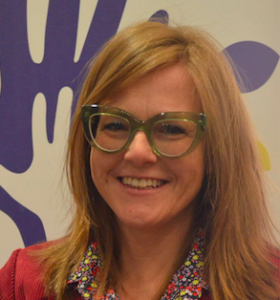
Doubting and Trusting My Teaching Vocation
“It’s like you’re crying out for them to trust you.”
These insightful words were said to me nearly 10 years ago in a small group conversation at a Wabash Workshop for Pre-Tenure Theological School Faculty. I remember the conversation with gratitude. We were sharing with each other what we had written down individually in response to reflection prompts about our experience in the classroom.
The prompts had elicited some unprocessed emotions in me about my first few years of teaching.
I was fortunate to get a teaching job the same semester I earned my Ph.D. I had some confidence in my abilities to do the job well, as I had graduated at the top of my class and gained some valuable classroom experience and mentoring in graduate school. But what little confidence I had was quickly shaken. After I had distributed and explained the syllabus in my first class, a student declared, “We’re going to run you back to Toronto where you came from!” Everyone laughed and cheered.
This class was comprised mostly of men, ranging in age from 40-70 years old, with one year left in their graduate program before they were ordained to the deaconate in the Roman Catholic Church. I stood before them as a freshly minted Ph.D., who had just turned 30 years old, and had not yet had the time or experience to find confidence my teaching voice. The demanding syllabus I had crafted may have surprised them, given my age, gender, and long blond hair.
I made it through that first semester, but I have the scars to prove it. I still remember one classroom discussion in which a student admitted, “I don’t know why I like to pick on you so much.” In another class, after a student bluntly told me that he didn’t know why I was teaching the way I was, I shouted, “I have a PhD!”
In hindsight, over a decade later, I can see the situation for what it was. My body was not welcome in the space. Just by standing in front of the class, as a woman in a position of religious authority, I challenged their assumptions of credible leadership. It’s likely that my students asked the (un)conscious question, “If she can’t be ordained, can she teach those who will?”
At the time though, the resistance I faced in the classroom, caused me to doubt my teaching vocation. “Maybe they’re right,” I worried. “Maybe I just don’t belong.” As a first-generation college student, I always felt like a bit of a misfit in graduate school. But now I was feeling for the first-time like a misfit in the church.
Sharing these experiences with my Wabash cohort colleagues brought healing and affirmation of my teaching vocation. Each of us in the cohort were all so different in so many ways (i.e., personality, educational background, race, ability, religious affiliation, culture) but we shared a vocation (in addition to a lot of food and fun). Others had not been welcomed in spaces due to their embodiment, in far more violent, ongoing, and consistent ways than I had ever experienced.
My cohort experience was also free from the academic pretense that so often deepened my self-doubt. I felt like I could be exactly who I was and that I was valued for it. I belonged.
As I began to trust my vocation and my place in the academy and church, my eager desire for my students to trust me waned. It didn’t matter as much. While trust is necessary for real intellectual and spiritual formation to occur, it can’t be earned, begged for, or contrived. In fact, now I understand that the most certain way to gain this trust from students is by embracing who I uniquely am and being true to my vocation.
Leave a Reply